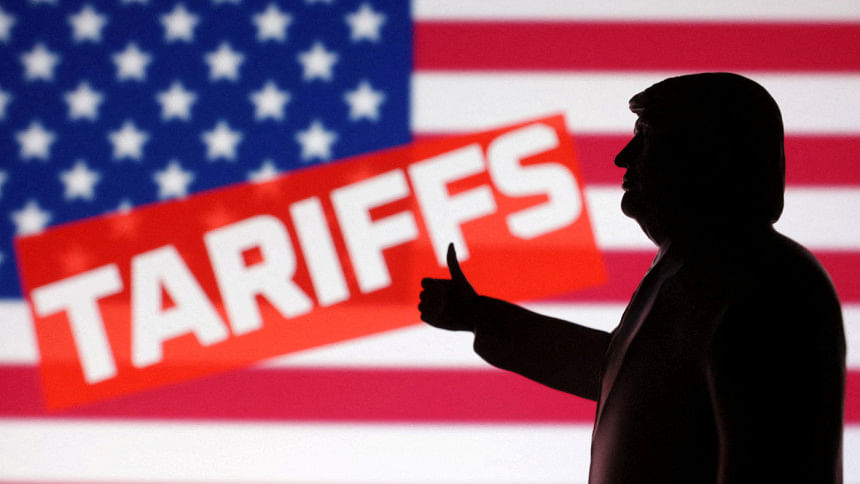Businesses criticise govt for missed chance in US tariff talks

Business leaders have expressed disappointment over Bangladesh's adoption of a 'let's see what happens' policy at a time when timely and effective negotiation with the United States on reciprocal tariffs was crucial.
Speaking at a discussion organised by the Bangla daily Prothom Alo at the Pan Pacific Sonargaon in Dhaka, they criticised the government for excluding the private sector from the negotiation process.
They said the government had assured them that discussions with the Office of the United States Trade Representative (USTR) were progressing in Bangladesh's favour, but they now fear the final decision will come from the Trump administration.
A leading economist at the event, however, recommended a slow and steady approach to negotiations in order to achieve better results.
AK Azad, a prominent garment exporter to the US, said he had never experienced such uncertainty in his four decades of business.
"I was convinced Bangladesh would secure a moderate tariff. However, one of my major buyers recently informed me that the outcome will not be as expected. Buyers are already asking how much of the tariff burden we can absorb," he said.
Debapriya Bhattacharya, a distinguished fellow at the Centre for Policy Dialogue, emphasised that every trade negotiation should begin with an understanding of the counterpart's economic context.
"The US economy is gradually losing competitiveness and facing twin deficits—current account and fiscal. The tariff move aims to cut imports, boost domestic investment, and create jobs. But Trump's assumption is unscientific and unsustainable," he said.
He warned that inflation in the US is likely to rise and that the economy will begin to feel the impact soon, particularly ahead of the midterm elections in November 2026.
Bhattacharya also criticised the government for handling the negotiations without consulting stakeholders and experts.
"By signing a non-disclosure agreement, the government opted for obligation over responsibility," he said.
He stressed that the talks should also address trade in services, which currently favours the US, and urged the government to undertake urgent domestic reforms. These include export diversification, productivity enhancement, and institutional strengthening.
"There is no instance where a weak government successfully negotiated a major trade deal. Given its lack of political legitimacy, this government should have engaged stakeholders in the negotiation process," he added.

 For all latest news, follow The Daily Star's Google News channel.
For all latest news, follow The Daily Star's Google News channel. 



Comments